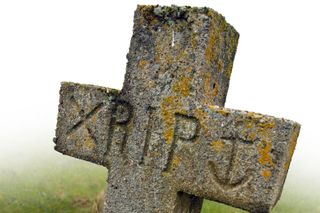Symantec: “Anti-virus software is no moneymaker"
Norton designers claim anti-virus is ineffective in the modern security climate

Anti-virus software is dead, according to the world's largest IT security company, Symantec.
The company lead the way for commercial anti-virus in the 1980s but is increasingly looking towards prevention, rather than cure. Fifty-five per cent of all malicious attacks pass straight through its antivirus software, it is claimed.
The source of the comments, Brian Dye, senior vice president of Symantec, told the Wall Street Journal: "We don't think of anti-virus as a moneymaker in any way."
Symantec has gone through two CEOs in as many years and is in the midst of a dip in share prices. Anti-virus still accounts for 40 per cent of the company's entire revenue stream.
Hackers and cybercriminals are using increasingly complex and novel ways of penetrating businesses' defences.
A report from research firm RedSocks has confirmed the slipping standards of anti-virus programs and the increasing aptitude of hackers. In January 2014, the overall malware detection rate for anti-virus software was 70 per cent, in February it dropped to 64 per cent.
The assumption made by security companies is that hackers will already be in a system and the key now is trying to detect them.
Get the ITPro. daily newsletter
Receive our latest news, industry updates, featured resources and more. Sign up today to receive our FREE report on AI cyber crime & security - newly updated for 2024.
The industry has responded to this changing battlefield, trying to create new ways to prevent significant damage from occurring inside a network. FireEye, Juniper and other firms have taken up the challenge of protecting users once their first line of defence has been breached.
Despite the damming statement from Dye, Symantec has said it has no plans to abandon its flagship product: Norton anti-virus. The company will instead rely on a new range of security products to boost revenue.
Within the next six months Symantec plans to outsource intelligence briefings on the dangers of specific threats. The aim will be to teach companies not just how they are being hacked, but why as well.
"If customers are shifting from protect to detect and respond, the growth is going to come from detect and respond," Dye added.
Most Popular





